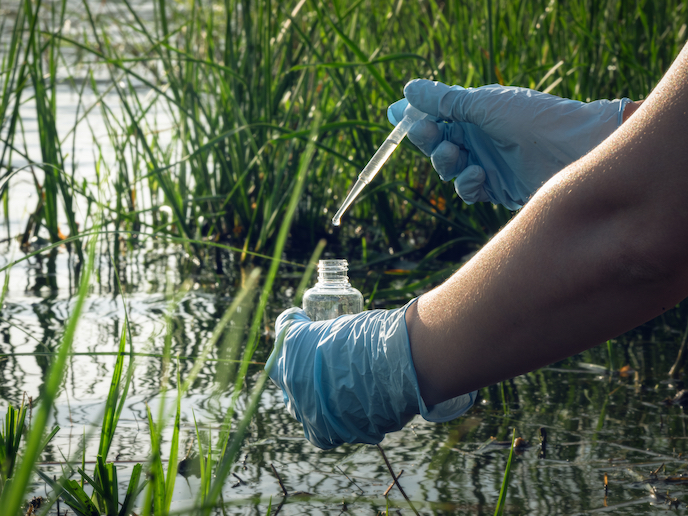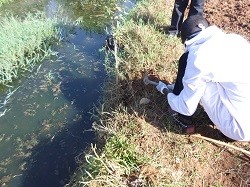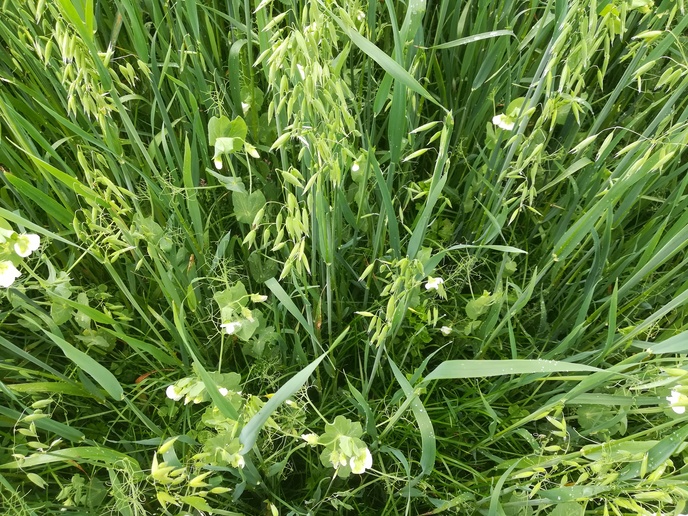Learning lessons from Latin American water pollution
Agricultural food production is the main economic activity of many Latin American (LA) countries, with some using more pesticides per capita than any other region in the world(opens in new window). The EU-funded KNOWPEC project investigated LA pesticide use to better understand their impact on the region’s environment, human health and food production, as well as assessing good remediation practices. KNOWPEC focused on three significantly different countries: Argentina, Bolivia and Costa Rica, studying the whole value chain. Through lab work, field trips, secondments and three workshops in each of the participating countries – involving regional and governmental authorities, industry and the scientific community – the team assessed the problem of pesticide pollution in key locations. “We monitored pesticides in natural waters, made toxicity evaluations, evaluated risk assessments and studied remediation techniques, making specific proposals to help protect waters in these countries,” says the project’s lead researcher Carmen Sans Mazon from the University of Barcelona(opens in new window), the project host. The Marie Skłodowska-Curie Actions(opens in new window) project has already generated a series of publications, including on the limitations of current environmental monitoring(opens in new window).
The scale of the problem
LA countries differ markedly in their approach to agricultural pesticides. Variances exist regarding: registration; application; chemical classes or quantities; restrictions and remediation policies; and knowledge of risks. Furthermore, field trips highlighted the variety of cropping systems from small (under 40 hectares) to medium (40 to 100 hectares) farms in highland and Altiplano(opens in new window) areas, and up to very large commercial farms, each using different pesticides, in different quantities. “Some pesticides in use are banned in the United States and Europe. Moreover, some policies to minimise risk in LA countries were transplanted wholesale from Europe and the United States but didn’t account for local contexts, so risks can be grossly underestimated,” adds Sans.
Monitoring, risk assessment and remediation
A review of studies monitoring pesticide occurrence in natural waters – alongside interviews with farmers, agronomists, pesticide distributors and environmentalists – enabled the team to identify the main sources of pollution and measure toxicity levels at impact sites. KNOWPEC then tested solar irradiation(opens in new window) remediation technologies. These use sunrays to spark chemical reactions that clear pesticides from water. The team successfully demonstrated the potential of these both in laboratory, as well as in pilot plant tests. Experiments suggested that fertilisers could be used as catalysts to enhance the degradation process, helping remove pesticides while producing fertiliser-infused water useful for agricultural irrigation. Additionally, biobeds and wetlands(opens in new window) were studied for their ability to remediate pesticide-contaminated water, through their biological processes. Both were evaluated for the same pesticide but under both European and LA climatological conditions, in Greece and Costa Rica respectively. “The result was that these two systems can be more effective when combined,” explains Sans.
Two-way benefits
As a Research and Innovation Staff Exchange (RISE) project, KNOWPEC promoted knowledge exchange and skills sharing between early-stage and experienced researchers in the LA countries and Europe. During each of the three country workshops, the KNOWPEC team worked with a range of stakeholders – agronomists, evaluators of pesticide registration processes, public authorities and industry representatives – to identify weaknesses within their legislation’s pesticide risk assessments. “We also transferred LA good practices to Europe, now suggested or adapted in our case studies. For example, instead of spraying pesticides on crops, as is done with bananas in Costa Rica, fungicides can be topically applied inside special bags, avoiding diffuse pollution,” concludes Sans.







